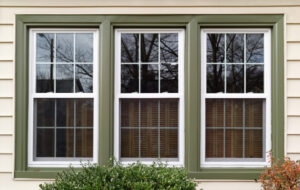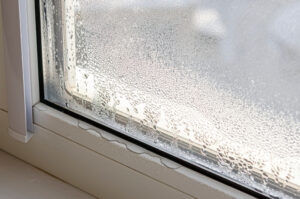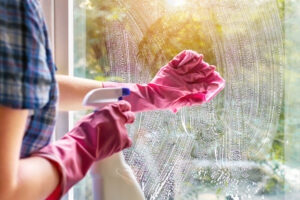If a rogue baseball flies through your window courtesy of the neighborhood kids, you’ll need to replace it immediately. But how long will a new window last in your home without pitching-related accidents? How do your climate and normal wear and tear affect the lifespan of your windows? And what maintenance can you do to increase window longevity?
For new and experienced homeowners alike, understanding the lifespan of your windows—and the best ways to extend it—can help you prepare for homeownership costs and responsibilities.
Below, our Window Nation experts have all the details on how long your windows should last and when it might be time for you to start looking at your next installment.

What’s the life expectancy of windows?
On average, window glass lasts about 20 years. A window frame can last up to 50 years depending on the material, maintenance, and the weather in your area. There are always exceptions to the rule, but unless you’re particularly destructive or in the middle of tornado alley, these estimates are a solid rule of thumb. You may need to replace certain parts of your window during this time, but it typically won’t be a full replacement—and these parts may even be covered by your warranty.
By the way, that also means you should double-check your warranty when you buy. Any warranty under about 10 years likely means you’re not working with a reputable company. After all, a great window company should be confident in how long your windows will last.
How long do vinyl windows last?
Vinyl windows last an average of 20-40 years. While that’s less than some wood frames, vinyl frames are less expensive and require less maintenance throughout their lifetime. However, vinyl faces a unique environmental problem. While most windows struggle against rain and snow, vinyl windows are particularly sensitive to extreme heat. Due to their plastic elements, extreme temperatures can warp the vinyl and eventually break it—especially if it’s painted post-installation.
If you live in extremely warm environments, vinyl can still be a cost-effective choice. Just be sure to speak with your contractor about sun direction and vinyl protection.
How long do aluminum windows last?
Aluminum windows will last an average of 40-50 years with good maintenance. They’re less common than vinyl windows but equally cost effective and extremely durable in nearly all weather conditions due to their rust resistance.
The only downside to aluminum windows is their energy efficiency. Because metal acts as a strong heat conductor, aluminum frames aren’t great at maintaining internal temperature. If you’re in a cold climate or looking to save a few dollars on your energy bill, aluminum might not be the best choice for your home. Otherwise, aluminum is a sturdy, affordable, long-lasting option for your windows.
How long do wood windows last?
Wood windows will last an average of 20 years, but their longevity can vary depending on care and environmental conditions. The great thing about wood is that with professional care and correct installation, it can last several lifetimes. That’s why we still have historical wooden architecture throughout the world! However, wood will also deteriorate if subjected to extreme conditions or inadequate maintenance.
To put it simply: wood can rot. Despite the aesthetic appeal, if you live in a moist climate, you’re probably going to be replacing wooden frames more often than you’d like. Be on the lookout for the signs of warping, rotting, or cracking. If wood needs replacing, it’s always best to get it done before the issues spread into your walls.
How often do windows need to be replaced?
Windows need to be replaced whenever they aren’t working properly. This may look like cracks in the glass, warping or rotting of the frame, or simply an inability to close your windows with a tight seal. Typically, glass will need to be replaced sooner than the frame, but any type of damage can do the trick—whether natural decay or a wayward baseball.
The question isn’t necessarily how often do you need to replace your windows, but how do you know when it’s time?

When to replace your windows
There are several different reasons you might want to get a window replacement, but not all of them are emergencies. Let’s break down a few different warning signs you’ll want to look for.
Visible damage: Leaks and decay
Some replacement needs are straightforward. If you notice cracks, moisture buildup, or chronic mold, it’s time for an upgrade. Visible damage should always be treated like an emergency. Small problems in home walls can escalate quickly, so you should install a replacement before these problems turn into expensive structural damage.
When in doubt, ask an expert. A consultation is a great way to assess the damage and make a plan for your new installment.
Malfunctions
Malfunctions aren’t as serious as visible damage, but they can be a nuisance. If you can’t easily open, close, or lock your windows, you’re not risking structural damage, but you are likely letting in drafts, bugs, and potential burglars.
Drafts are often indicators that you need a replacement. Even if your frame mechanisms work correctly, drafts can still leak in from warped glass, degraded seals, and even small holes in the frame itself. If your AC or heater is working overtime, you might want to look into fixing those pesky, drafty windows.
Fluctuating bills
Sometimes, you can’t see when your windows are leaking—but your wallet can. Rising energy bills come and go with the economy, but if you’re noticing an upward trend that your friends aren’t, it might actually be your windows’ fault.
The best way to test for these subtle drafts is the candle test. Simply hold a lighter or candle near your windows. If the flame moves—that’s a leak. It’s time to call your nearest window experts. Don’t have a candle? There are plenty of simple ways to test your windows for small leaks and catch problems before they get serious.
Noise bleed
Noise is a relatively modern problem. But since we have modern solutions, why not take advantage of them? If you live in a noisy city or have neighbors who like to put their music on blast, your standard-issue single-paned windows may not block sound very effectively. Investing in better soundproofing for your windows can make a dramatic difference.
Installing triple-paned glass is a great way to decrease your energy bills while simultaneously dampening that unwanted outside noise. Different brands may also offer window glass specifically designed for soundproofing.
How long do replacement windows last?
Replacement windows last as long as your original windows—provided there aren’t any new or remaining issues. For instance, if you replace a broken window pane but don’t replace your frame, you may still need to replace the frame within the next decade. Other factors like maintenance, weather, and daily hazards also play a role in determining how long windows and frames will last.
Wondering how to measure your windows for replacement? Check out our comprehensive guide!
How to make your windows last longer.
Replacement windows are an investment, so it’s worthwhile to do your best to maintain the windows you have. Here are some ways to make your windows last longer.
- Clean your windows and frames regularly.
- Keep window tracks clean from dust and debris.
- If your windows are leaking when it rains, you’ll want to re-caulk them as soon as possible to prevent further damage. (Learn how in this step-by-step guide!)
- Check your windows regularly. Be on the lookout for signs of mold, rot, and condensation.
- Replace window seals. If the seals around your windows are cracked or worn, it leads to greater wear and tear on the frame. Seals are easy to replace and help decrease your energy bills.
- Repaint. Repainting every 3-5 years not only keeps your windows looking new, but can protect your frame from the elements.
- Avoid water damage by ensuring all outside sprinklers and hoses are pointed away from windows, and glean your gutters regularly.
- Replace any worn weather stripping or broken hardware ASAP.
Ready for a window replacement? Ask the experts at Window Nation.
If your windows are on their last legs, you don’t have to figure out a replacement on your own.
Window Nation’s exterior design consultants are always ready to help you find the best solution for your home and provide a free estimate. Whether you’re looking for a simple replacement or a full upgrade, we’re happy to make your window dreams come true with a professional installation.
Schedule a risk-free in-home estimate today. Your quote is good for up to 6 months, giving you plenty of time to finalize your vision and say goodbye to your faulty windows.



